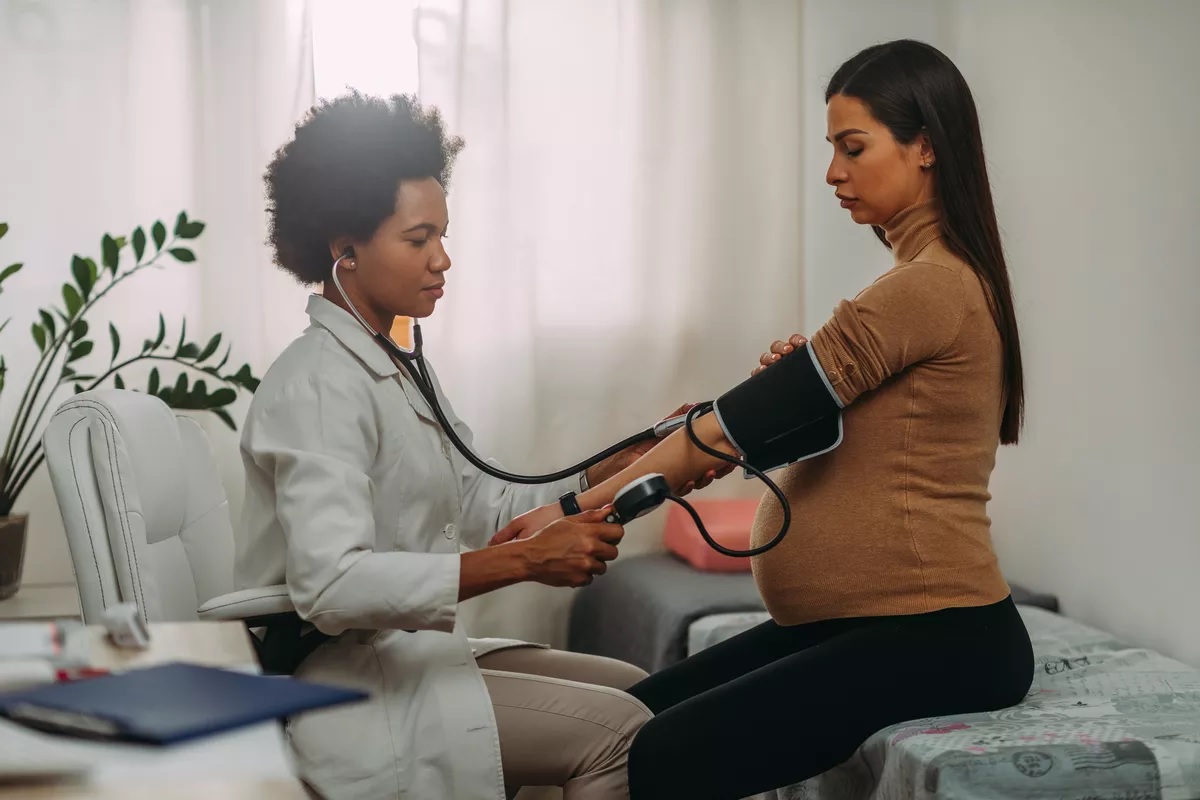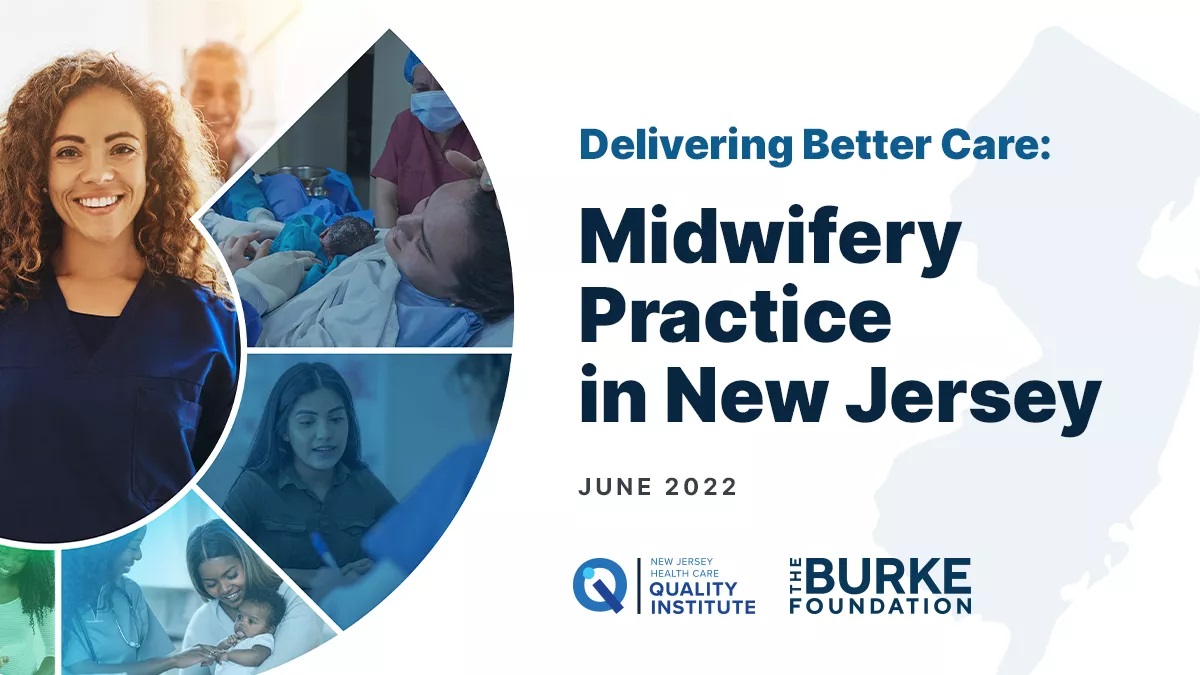👋 Welcome to Starting Early. Every other week, we spotlight new reports, useful news, engaging interviews with people doing important work, and interesting takes on maternal health and early childhood development issues.
As we celebrate Juneteenth this Sunday and the generations of Black Americans who fought for equality and civil rights, it’s important to recognize racism as a continued driver of racial disparities in health, economic wellbeing, and countless other aspects of life.
Black women in the US are 3 times more likely to die from pregnancy-related complications than are white women, and American Indian and Alaskan Native women are twice as likely to die. Women of color are also more likely to have a preterm or low birthweight birth and receive little to no prenatal care. Despite spending about $111 billion a year on maternal care, the US has some of the worst maternal health outcomes among high-income countries.
Midwifery — a practice with roots dating back centuries — can play an important role in improving US maternal health, in part by addressing racial disparities. But misinformation, stigma, and restrictive policies hinder the growth of the midwifery profession in the US.
Read on and click the links to go deeper.
1 big thing — Health and economic benefits of midwifery

Midwifery 101: Midwives are health professionals trained to deliver care before, during, and after pregnancy. Labor and delivery are just a portion of midwives’ scope of practice: They also provide care across the lifespan, including primary, reproductive, and newborn care.
In the US, there are three types of credentialed midwives:
- Certified nurse-midwives (CNMs)have a Registered Nurse license in addition to a midwifery graduate degree and can practice in hospitals, homes, birth centers, and medical offices. But they mostly attend births in hospitals. All 50 states and the District of Columbia license CNMs, the most common type of midwife in the US.
- Certified midwives (CMs) have a bachelor’s degree in a non-nursing subject plus a midwifery graduate degree and can attend births in all settings. Only 10 states license CMs, including New Jersey.
- Certified professional midwives (CPMs) train through an apprenticeship with a qualified midwife or attend a midwifery program or school. CPMs practice in homes, birth centers, and medical offices. They are licensed in 35 states and the District of Columbia, including New Jersey.
The benefits of midwife-led care
The midwifery model of care is patient-centered, holistic, and culturally congruent. Unlike physicians, midwives treat pregnancy as a natural life event, not a medical condition. Through midwife-led care, mothers with low-risk pregnancies can choose from a range of childbirth options, including homebirths and waterbirths, and are less likely to undergo such high-risk, often unnecessary medical interventions as C-sections, episiotomies, and labor induction. Midwife-led care is associated with:
- Reduced maternal and infant mortality
- Increased breastfeeding initiation and duration
- Reduced rates of low birthweight babies
Midwife-led care is also cost-effective: Increasing the percentage of midwife-attended pregnancies from 9% to 15% by 2023 could result in $1 billion in cost savings nationwide. An increase to 20% of births by 2027 could save $4 billion.
Why it matters: Midwives attend only 9% of US births despite the many benefits of their care. Fully integrating midwives into the healthcare system could help improve US maternal healthcare, which is plagued by a shortage of providers, high costs, and poor outcomes. States where midwives are part of regional health systems have better maternal and child health outcomes.
- Integrating midwife-led care has proven successful in other countries too. Midwives provide 70 to 80% of maternal care in Western Europe, Scandinavia, and New Zealand, contributing to lower rates of interventions during birth. 🌍
2. Midwifery’s roots in the US
Only 12% of midwives in the US identify as Black, Latino, or Native American. Yet midwifery has deep roots in Black, indigenous, and immigrant communities. Before the 19th century, midwives were the primary providers of maternal care in the US – particularly midwives of color.- Black midwives provided healing, spiritual, and maternal care. Highly-respected members of their communities, they attended up to 75% of births in the Southeastern US in the 1940s.
- Indigenous tribes had midwives who attended births in their own communities. In the Navajo tribe, traditional midwives were called “baby medicine women” or “umbilical cord cutters.”
- Curandera-parteras– traditional Latino midwives – worked in underserved Latin communities. In one New Mexico county, parteras attended 72% of births in 1936.
— Nicolle Gonzalez, a Native American certified nurse midwife who founded the Changing Woman Initiative
3. Expanding midwifery in New Jersey

In response to the disheartening disparities in maternal and infant health, the Burke Foundation partnered with the New Jersey Health Care Quality Institute on a recently-released report — Delivering Better Care: Midwifery Practice in New Jersey.
By the numbers:
- There are 409 midwives in New Jersey compared to 2,050 OB/GYNs.
- About 10% of NJ births are attended by midwives.
The report offers such state-specific recommendations to strengthen and diversify the midwifery workforce as:
- Raise public awareness of the important role midwives play in birthing
- Reduce barriers to entry and retention in midwifery education
- Diversify the midwifery workforce to address racial disparities and provide culturally-congruent care
- Increase opportunities for midwife clinical training, including team-based and community-embedded opportunities
Go deeper: View this Burke Twitter thread and read this blog post from Kate Shamszad, Director of the Quality Institute’s Medicaid Policy Center, for more information on the report’s findings.
4. One smile to go: Celebrating Turquoise😃

Turquoise Brewington, the Burke Foundation’s maternal infant health intern, recently graduated from Princeton University’s School of Public and International Affairs. Her thesis, “A Good Birth, A Safe Birth”: The Role of Maternal Health Providers in Constructing Birth Safety in the United States, analyzes the role of midwives and OB/GYNs in defining the conditions of a safe birth and influencing maternal health policy. Her work was informed by 36 interviews with midwives and OB/GYNs from New Jersey, North Carolina, and Washington.
Since joining the Foundation last fall, Turquoise has supported several of Burke’s maternal and child health initiatives and played a key role in our recently-released midwifery report. We’re glad that Turquoise will continue working with our team this summer. Then she’ll join the Boston Consulting Group as an associate working in their healthcare practice.
Reflecting on her research and Burke’s new midwifery report, Turquoise shares, “As a Black woman, I could not help but fear for my future as a birthing person when I learned that my home state of New Jersey has some of the worst maternal health outcomes and racial disparities in the nation. My identity informs my commitment to racial justice in everything I do and has reaffirmed why maternal health matters to me: it is about intersections — identities, experiences, and so much more that significantly influence society.”
Congratulations, Turquoise! 🎉
The roundup
Learn about upcoming events, new funding opportunities, and jobs in maternal and infant health and early childhood:
- Join our team: The Burke Foundation is hiring an operations manager to support our growing team. Click here for the job description and information on how to apply.
- Learn about our new strategy: Atiya Weiss, executive director of the Burke Foundation, sits down with the New Jersey Health Care Quality Institute t0 discuss our new First 1,000 Days strategy. Read the interview here.
- Creating a culture of inclusion: Join the American College of Nurse Midwives for its 2022 Diversity and Inclusion Conference, August 8-9. Register to learn how to create professional and institutional cultures inclusive of midwives from diverse backgrounds.
- Building community among LGBTQ+ families: Join Brazelton Touchpoints Center on June 20 for the final episode of the Family-to-Family Real Talk Series focused on LGBTQ+ families. Register to hear the firsthand accounts of LGBTQ+ parents navigating such issues as media representation of diverse family forms and the impact of public policy on their families’ lives.
- Support research on child wellbeing: Child Trends seeks candidates for several fully-remote positions. Go here to see job openings focused on child welfare, youth development, early childhood, and more.
